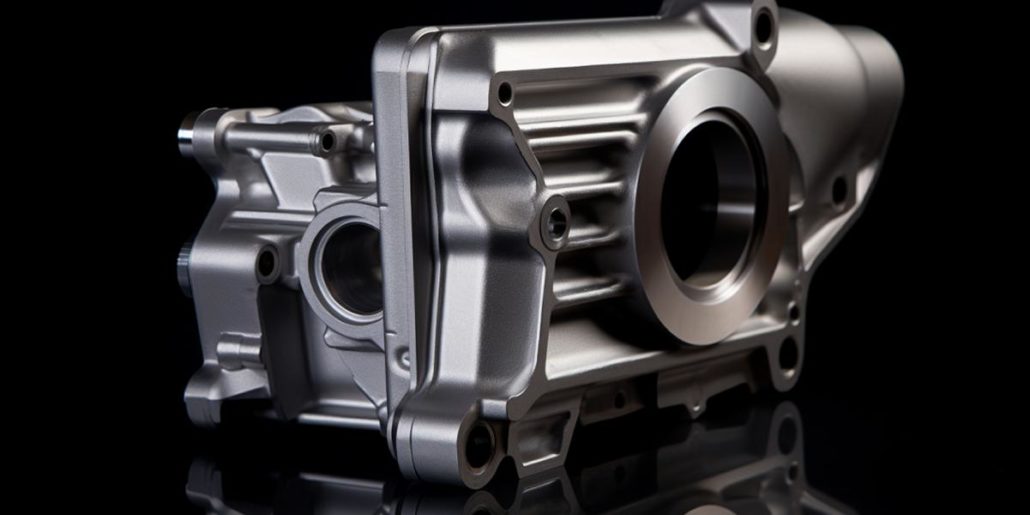Unveiling the Strengths: A Comprehensive Guide to A383 Aluminum Properties
In the world of metal alloys, A383 aluminum stands out as a versatile and robust material, known for its unique properties and applications. In this comprehensive guide, we will delve into the intricacies of A383 aluminum die casting, exploring its composition, physical and mechanical properties, heat treatment processes, casting characteristics, and practical applications. Whether you’re an engineer, a manufacturer, or simply curious about metallurgy, join us on this journey to uncover the strengths of A383 aluminum.
Composition of A383 Aluminum
Primary Elements
A383 aluminum is primarily composed of aluminum, with specific percentages of key elements such as silicon, copper, and magnesium. Understanding the composition is crucial to harnessing its full potential in various applications.
Alloying Elements
The alloying elements in A383 aluminum play a significant role in enhancing its mechanical properties. We’ll explore how elements like silicon and magnesium contribute to the alloy’s overall strength and durability.
Impurities and Tolerances
Even in well-regulated manufacturing processes, impurities may be present in A383 aluminum. We’ll discuss the tolerance levels and the impact of impurities on the alloy’s performance.
Physical Properties
Density
A383 aluminum boasts a specific density that influences its weight and volume. Learn how this property affects the alloy’s applications and suitability for different industries.
Melting Point
Understanding the melting point of A383 aluminum is crucial for casting processes. We’ll explore the alloy’s thermal behavior and its implications for manufacturing.
Thermal Conductivity
Explore the thermal conductivity of A383 aluminum and its applications in industries where efficient heat transfer is essential.
Electrical Conductivity
A383 aluminum exhibits specific electrical conductivity characteristics. Discover how this property is relevant in electrical applications and industries.
Mechanical Properties
Tensile Strength
The tensile strength of A383 aluminum determines its ability to withstand tension. Learn about the alloy’s tensile strength and its significance in structural applications.
Yield Strength
Understanding yield strength is essential for assessing A383 aluminum’s deformation under load. We’ll delve into this mechanical property and its implications.
Elongation
Elongation measures the material’s ability to stretch without breaking. Discover how A383 aluminum’s elongation properties influence its applications.
Hardness
Explore the hardness of A383 aluminum and its relevance in resisting wear and abrasion in various industrial settings.
Heat Treatment
Annealing
Annealing processes play a crucial role in optimizing the properties of A383 aluminum. Learn about the annealing techniques and their impact on the alloy’s performance.
Solution Heat Treatment
Discover the significance of solution heat treatment in enhancing the mechanical properties of A383 aluminum.
Aging
Aging processes contribute to the strengthening of A383 aluminum over time. Explore the different aging methods and their effects on the alloy’s durability.
Casting Characteristics
Casting Process
The casting process for A383 aluminum involves specific techniques. We’ll delve into the casting methods and their implications for the final product.
Mold Types
Explore the types of molds used in casting A383 aluminum and how they influence the alloy’s surface finish and overall quality.
Surface Finish
The surface finish of A383 aluminum is a critical aspect in various applications. Learn how casting characteristics contribute to achieving the desired finish.
Applications
Industries using A383 Aluminum
A383 aluminum finds applications in diverse industries. Explore how its unique properties make it a preferred choice in automotive, aerospace, and other sectors.
Common Applications
From intricate components to structural elements, A383 aluminum is versatile. Discover its common applications and the advantages it offers in each.
Advantages in Specific Uses
We’ll explore specific use cases where A383 aluminum outshines other materials, highlighting its advantages in different industries.
Comparison with Other Aluminum Alloys
A383 vs. A380
Compare the properties of A383 and A380 aluminum alloys to understand their distinctions and suitability for various applications.
A383 vs. A360
Explore the differences between A383 and A360 aluminum alloys, considering their compositions and performance characteristics.
Key Distinctions
Highlight the key distinctions that set A383 aluminum apart from other aluminum alloys, helping manufacturers make informed decisions.
Considerations for Use
Environmental Factors
Considerations related to environmental factors, such as corrosion resistance and sustainability, play a crucial role in determining the suitability of A383 aluminum for specific applications.
Corrosion Resistance
Examine the corrosion resistance of A383 aluminum and how it fares in different environments, ensuring longevity and reliability in various conditions.
Machinability
The machinability of A383 aluminum influences its ease of fabrication. Explore the machinability factors and considerations for efficient processing.
Conclusion
In conclusion, A383 aluminum emerges as a formidable material with a myriad of applications, thanks to its unique composition and exceptional properties. This comprehensive guide has provided insights into its physical and mechanical characteristics, casting processes, applications, and considerations for optimal use. Whether you’re in the engineering field or simply curious about metallurgy, understanding A383 aluminum opens doors to innovation and efficient manufacturing practices.
Looking for a reliable and efficient China die casting manufacturer? Look no further than GC Precision Mold Co. Ltd! Formerly known as Aluminum Die Casting (China) Ltd., we specialize in die casting parts and have two manufacturing companies for high pressure die casting (aluminum die casting, zinc die casting, magnesium die casting), aluminum gravity casting, aluminum sand casting, aluminum profile, aluminum precision machining, metal die casting, and forging casting.
Our head office is located in Dong Guan City, Guang Dong Province, and our resident senior Western management team permanently monitors the development of products, projects, manufacturing processes, quality assurance, and control.
We take pride in carrying out assembly operations in our own plant to ensure the quality of complex, engineered, and critical-to-manufacture products. We also protect the intellectual property of our customers.
Choose GC Precision Mold die casting manufacturer for exceptional quality and service. Contact us today to learn more about our services and how we can help meet your die casting needs!
